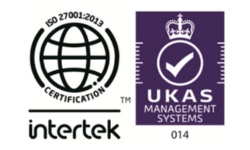Keeping the UK paid – This is the movement that The CIPP created as a part of national payroll week. We have already looked into ways how businesses can celebrate national payroll week, but now we will explore the true meaning behind ‘Keeping the UK paid’ and how payroll provides such a huge role in the UK economy.
How Payroll supports the UK economy

1. Ensuring Employee Satisfaction and Retention
Employee satisfaction is closely linked to payroll accuracy and timeliness. When employees know they will be paid correctly and on time, it builds trust and confidence in their employer. This trust is foundational to job satisfaction and retention.
A well-managed payroll system eliminates errors that could lead to underpayment, overpayment, or delayed payment, all of which can cause dissatisfaction among employees. Consistent errors or delays can lead to a breakdown in trust, resulting in higher turnover rates. On the other hand, a reliable payroll process demonstrates that the company values its employees, fostering a positive work environment and encouraging long-term commitment.
The Impact of Timely Payments
Consider a scenario where a company consistently processes payroll late. Employees may begin to question the financial stability of the business, leading to increased anxiety and reduced morale. Conversely, companies that maintain a punctual payroll schedule reinforce their reliability and stability, making employees feel secure in their positions.
2. Maintaining Legal Compliance
Payroll in the UK is governed by a complex set of laws and regulations, including the National Minimum Wage, tax obligations, pension contributions, and statutory benefits such as maternity and paternity pay. Failure to comply with these regulations can result in significant legal and financial penalties.
A robust payroll system ensures that all deductions are made correctly, including income tax (PAYE), National Insurance contributions, and pension contributions under the auto-enrolment scheme. It also keeps track of holiday pay, sick pay, and other statutory entitlements, ensuring that employees receive what they are legally entitled to without the risk of non-compliance.
Avoiding Costly Penalties
Companies that fail to comply with payroll regulations may face fines from HMRC, backdated payments to employees, and potential legal action. A well-managed payroll system minimises these risks by automating compliance tasks, such as calculating the correct tax rates and ensuring that all statutory payments are made.
3. Enhancing Financial Planning and Budgeting
Accurate payroll management plays a crucial role in a company’s financial planning and budgeting. By ensuring that payroll expenses are predictable and well-documented, businesses can better forecast their financial needs and allocate resources more effectively.
Payroll is often one of the largest expenses for a company. Therefore, having a clear understanding of payroll costs helps businesses make informed decisions about hiring, employee benefits, and other financial commitments. Accurate payroll records also provide valuable data for analysing labour costs, assessing profitability, and identifying areas where savings can be made.
Strategic Decision-Making
A company with a clear view of its payroll expenses can make strategic decisions, such as when to hire new staff, how to structure employee benefits, or where to cut costs without affecting employee morale. This level of insight is only possible with a well-organised payroll system that delivers accurate, up-to-date financial information.
4. Building and Protecting Business Reputation
A company’s reputation is one of its most valuable assets, and payroll management plays a significant role in maintaining it. Late or incorrect payments can damage a company’s reputation not only with employees but also with clients, suppliers, and regulators.
Poor payroll practices can spread quickly through social media and online reviews, potentially harming the company’s public image. Conversely, a reputation for treating employees fairly and ensuring they are paid on time can enhance a company’s standing in the marketplace, making it more attractive to top talent and customers alike.
Reputation Management
A company that consistently fails to meet payroll obligations may struggle to attract skilled workers or maintain positive relationships with clients and partners. In contrast, businesses known for their reliable payroll practices can build a reputation as a desirable employer and a trustworthy partner, leading to long-term business success.
5. Improving Efficiency and Reducing Administrative Burden
Managing payroll manually can be a time-consuming and error-prone process, particularly for large organisations with numerous employees. By implementing automated payroll systems, businesses can significantly improve efficiency and reduce the administrative burden on HR and finance teams.
Automated payroll systems streamline the entire payroll process, from calculating wages and deductions to generating payslips and submitting reports to HMRC. This not only reduces the likelihood of errors but also frees up valuable time that can be spent on more strategic tasks, such as employee development or financial planning.
Automation in Action
A business that adopts an automated payroll system may find that it can process payroll in a fraction of the time it took previously. This efficiency gain can lead to cost savings, as less time is spent on administrative tasks, and the risk of costly errors is reduced.
6. Facilitating Employee Access to Payroll Information
Modern payroll systems often include self-service portals that allow employees to access their payroll information, such as payslips, tax documents, and leave balances, at any time. This level of transparency not only empowers employees but also reduces the workload on HR teams, who no longer need to handle routine payroll inquiries.
By providing employees with easy access to their payroll information, companies can improve transparency and trust, leading to higher levels of employee engagement and satisfaction.
Employee Empowerment Through Self-Service
An employee who can quickly access their payslip online to check deductions or view their remaining holiday allowance is likely to feel more in control of their finances. This empowerment can lead to increased job satisfaction and a stronger sense of loyalty to the company.
7. Supporting Business Growth and Scalability
As businesses grow, their payroll needs become more complex. Managing payroll for a small startup is very different from managing it for a large organisation with hundreds or thousands of employees. A scalable payroll system is essential to support business growth and ensure that payroll processes can handle increased demand without compromising accuracy or compliance.
A well-designed payroll system can easily adapt to changes in the business, such as adding new employees, expanding into new regions, or introducing new types of compensation and benefits. This scalability ensures that payroll remains efficient and compliant, even as the business evolves.
Scaling for Success
A company that expands rapidly without a scalable payroll system may struggle to keep up with the increased complexity of payroll management, leading to errors and compliance issues. By investing in a payroll, businesses can ensure that their payroll processes grow with them, supporting sustainable growth and long-term success.
PayEscape Helps Keep The UK Paid
By investing in payroll with PayEscape, businesses can ensure efficiency through automation, maintaining compliance with complex regulations, and enhancing employee satisfaction through timely payments. Get in touch with a member of PayEscape online or book a free demo today.


















